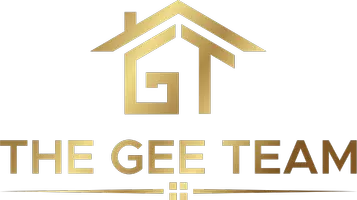Which Loan Is Best for YOU?
Navigating the world of real estate can be a daunting task, especially when it comes to securing the right mortgage. With various options available, it’s essential for buyers and investors to understand the different types of loans to make an informed decision. In this blog, we’ll delve into the three main types of mortgages: FHA, VA, and conventional loans. We’ll explore their unique features and help you determine which might be the best fit for your financial situation and investment goals.
FHA Loans
Federal Housing Administration (FHA) loans are a popular choice for first-time homebuyers or those with less-than-perfect credit. These loans are insured by the FHA, which means lenders are more willing to offer favorable terms. Here are some key features:
- Lower Credit Requirements: FHA loans typically require a minimum credit score of 580, although some lenders may accept scores as low as 500 with a larger down payment.
- Low Down Payment: Buyers can secure an FHA loan with as little as 3.5% down.
- Flexible Debt-to-Income Ratios: Lenders may be more lenient with your debt-to-income ratio compared to conventional loans.
However, FHA loans come with some downsides. They require mortgage insurance premiums (MIP), both upfront and annually, which can add to your overall costs. Additionally, there are limits on how much you can borrow depending on your location.
VA Loans
For eligible veterans, active-duty service members, and certain members of the National Guard and Reserves, VA loans offer exceptional benefits. These loans are guaranteed by the Department of Veterans Affairs (VA), which allows lenders to provide favorable terms without requiring a down payment or private mortgage insurance (PMI).
Key benefits include:
- No Down Payment Required: Qualified borrowers can finance 100% of the home’s value.
- No PMI: Unlike FHA and conventional loans, VA loans do not require private mortgage insurance.
- Competitive Interest Rates: VA loans often come with lower interest rates compared to other loan types.
To qualify for a VA loan, you must meet specific service requirements and obtain a Certificate of Eligibility (COE). While these loans offer substantial benefits, they also come with a funding fee that varies based on your service history and loan amount.
Conventional Loans
Conventional loans are not backed by any government agency and are ideal for borrowers with strong credit histories and stable incomes. These loans offer more flexibility in terms of property types and loan amounts but come with stricter qualification criteria.
Features include:
- Higher Loan Limits: Conventional loans typically allow for higher borrowing limits than FHA or VA loans.
- No Upfront Mortgage Insurance: Borrowers who put down at least 20% avoid PMI altogether.
- Variety of Terms: Conventional mortgages come in various term lengths (15, 20, 30 years), offering flexibility in monthly payments and interest rates.
However, conventional loans usually require higher credit scores (typically above 620) and larger down payments (often starting at 5%). If you’re planning to invest in real estate properties beyond your primary residence, conventional loans might offer the most versatile options.
Choosing the Best Loan for You
When deciding which mortgage is best for you, consider the following factors:
1. Credit Score: Evaluate your credit score to determine which loan types you’re eligible for.
2. Down Payment Ability: Assess how much you can afford to put down upfront.
3. Loan Amount Needed: Consider if you need higher borrowing limits that conventional loans might offer.
4. Long-Term Plans: Think about how long you plan to stay in the home or hold onto the investment property.
In conclusion, choosing the right mortgage involves understanding your financial situation and long-term goals. Whether you're a first-time buyer looking at FHA options, a veteran considering a VA loan's benefits, or an investor eyeing conventional financing flexibility, there's a mortgage out there tailored to meet your needs. Make sure to consult with a qualified mortgage advisor who can guide you through this crucial decision-making process. Happy house hunting!
Categories
Recent Posts










